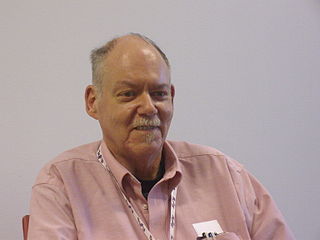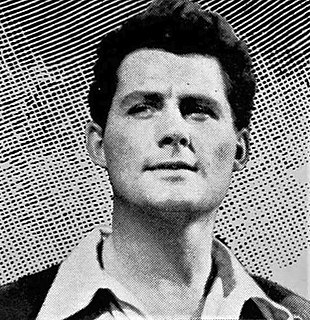A Quote by J. G. Ballard
Human beings today are surrounded by huge institutions we can never penetrate: the City, the banking system, political and advertising conglomerates, vast entertainment enterprises. They've made themselves user friendly, but they define the tastes to which we conform. They're rather subtle, subservient tyrants, but no less sinister for that.
Quote Topics
Related Quotes
Italy spills over to everything. Italy is a huge banking system. It has been the major banking system in Eastern Europe. It's worked with Austria's banking system. There's all sorts of interplays there. So it's not the PIIGS one should worry about. Germany hasn't even begun falling yet. And when Germany falls, and it will, that's when the panic begins to set in.
I've got to stop getting obsessed with human beings and fall in love with a chair. Chairs have everything human beings have to offer, and less, which is obviously what I need. Less emotional feedback, less warmth, less approval, less patience and less response. The less the merrier. Chairs it is. I must furnish my heart with feelings for furniture.
The world has paid a heavy price for the lack of democracy in most of the Middle East. Operation Ajax [CIA code for the August 1953 coup] taught tyrants and aspiring tyrants there that the world's most powerful governments were willing to tolerate limitless oppression as long as oppressive regimes were friendly to the West and to Western oil companies. That helped tilt the political balance in a vast region away from freedom and toward dictatorship.
The only phenomenon with which writing has always been concomitant is the creation of cities and empires, that is the integration of large numbers of individuals into a political system, and their grading into castes or classes. It seems to have favored the exploitation of human beings rather than their enlightenment.
We are governed, our minds are molded, our tastes formed, our ideas suggested, largely by men we have never heard of. This is a logical result of the way in which our democratic society is organized. Vast numbers of human beings must cooperate in this manner if they are to live together as a smoothly functioning society.
I am prepared to maintain that Honesty is essentially an anarchistic and disintegrating force in society, that communities are held together and the progress of civilization made possible only by vigorous and sometimes even, violent Lying; that the Social Contract is nothing more or less than a vast conspiracy of human beings to lie and humbug themselves and one another for the general Good.
[H]uman beings...make a limit in their mind of what their potential is. They decide, "I've been told this," or "this is what society tells me," or they've been made to believe something. If every human being actually threw away those thoughts...the potential of human beings is great, it's huge, compared to what they actually think of themselves.
Our marvelous new information technologies boost our power and opportunities for political engagement, but they can also disempower us by contributing to extreme political mobilization that sometimes overwhelms our institutions. These institutions were designed for rural societies operation at a tiny fraction of today's speed and with a citizenry vastly less capable that today's. It's unclear how they will change to adapt to the new reality, but change they must.
No religion I ever encountered made any sense. None are consistent. Most gods are megalomaniacs and paranoid psychotics by their worshippers' description. I don't see how they could survive their own insanity. But it's not impossible that human beings are incapable of interpreting a power so much greater than themselves. Maybe religions are twisted and perverted shadows of truth. Maybe there are forces which shape the world. I myself have never understood why, in a universe so vast, a god would care about something so trivial as worship or human destiny.
My single greatest challenge is to remain centered and loving in an overwhelmingly nonvegan world. In today's world, cruelty and exploitation of other beings - human and non-human alike - are accepted, practiced, and profited from by most every institution of society - from commerce and science to education and entertainment. Unfortunately, the vast majority of Homo sapiens are either unaware of the cruelty or accept it as unavoidable and even normal.
The arts are not simply skills: their concern is the intellectual, ethical, and spiritual maturity of human life. And in a time when religious and political institutions are so busy engraving images of marketable gods and candidates that they lose their vision of human dignity, the arts have become the custodians of those values which most worthily difine humanity, which most sensitively define Divinity.







































